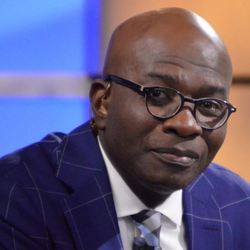Related Research Articles
Talk radio is a radio format containing discussion about topical issues and consisting entirely or almost entirely of original spoken word content rather than outside music. They may feature monologues, dialogues between the hosts, interviews with guests, and/or listener participation which may be live conversations between the host and listeners who "call in" or via voice mail. Listener contributions are usually screened by a show's producers to maximize audience interest and, in the case of commercial talk radio, to attract advertisers.

The Federal Communications Commission (FCC) is an independent agency of the United States government that regulates communications by radio, television, wire, satellite, and cable across the United States. The FCC maintains jurisdiction over the areas of broadband access, fair competition, radio frequency use, media responsibility, public safety, and homeland security.

The Communications Act of 1934 is a United States federal law signed by President Franklin D. Roosevelt on June 19, 1934, and codified as Chapter 5 of Title 47 of the United States Code, 47 U.S.C. § 151 et seq. The act replaced the Federal Radio Commission with the Federal Communications Commission (FCC). It also transferred regulation of interstate telephone services from the Interstate Commerce Commission to the FCC.
The fairness doctrine of the United States Federal Communications Commission (FCC), introduced in 1949, was a policy that required the holders of broadcast licenses both to present controversial issues of public importance and to do so in a manner that fairly reflected differing viewpoints. In 1987, the FCC abolished the fairness doctrine, prompting some to urge its reintroduction through either Commission policy or congressional legislation. The FCC removed the rule that implemented the policy from the Federal Register in August 2011.
In U.S., Canadian, and Mexican broadcasting, a city of license or community of license is the community that a radio station or television station is officially licensed to serve by that country's broadcast regulator.

Armstrong Williams is an American political commentator, entrepreneur, author, and talk show host. Williams writes a nationally syndicated conservative newspaper column, has hosted a daily radio show, and hosts a nationally syndicated television program called The Armstrong Williams Show. He is the owner of Howard Stirk Holdings, a media company affiliated with Sinclair Broadcasting that has purchased numerous television stations. Williams is a longtime associate of former HUD Secretary and 2016 presidential candidate Ben Carson. With David D. Smith, he is part-owner of The Baltimore Sun.

The Public Broadcasting Act of 1967 issued the congressional corporate charter for the Corporation for Public Broadcasting (CPB), a private nonprofit corporation funded by taxpayers to disburse grants to public broadcasters in the United States, and eventually established the Public Broadcasting Service (PBS) and National Public Radio (NPR). The act was supported by many prominent Americans, including Fred Rogers, NPR founder and creator of All Things Considered Robert Conley, and Senator John O. Pastore of Rhode Island, then chairman of the Senate Subcommittee on Communications, during House and United States Senate hearings in 1967.

WGGY is a commercial FM radio station licensed to Scranton, Pennsylvania, and serves the Wilkes-Barre--Scranton radio market. It broadcasts a country radio format and is owned by Audacy, Inc. The studios are on Pennsylvania Route 315 in Pittston.

Broadcast law and Electricity law is the field of law that pertains to broadcasting. These laws and regulations pertain to radio stations and TV stations, and are also considered to include closely related services like cable TV and cable radio, as well as satellite TV and satellite radio. Likewise, it also extends to broadcast networks.
Red Lion Broadcasting Co. v. Federal Communications Commission, 395 U.S. 367 (1969), was a seminal First Amendment ruling at the United States Supreme Court. The Supreme Court held that radio broadcasters enjoyed free speech rights under the First Amendment, but those rights could be partially restricted by the Federal Communications Commission (FCC) to maintain the public interest in equitable use of scarce broadcasting frequencies. As a result, the FCC's Fairness Doctrine was found to be constitutional.

The term right-wing alternative media in the United States usually refers to internet, talk radio, print, and television journalism. They are defined by their presentation of opinions from a conservative or right wing point of view and politicized reporting as a counter to what they describe as a liberal bias of mainstream media.

WHP is a commercial AM radio station licensed to Harrisburg, Pennsylvania, serving the Harrisburg metropolitan area of South Central Pennsylvania. It broadcasts a talk radio format and is owned by iHeartMedia, Inc. The studios are on Corporate Circle in Harrisburg, off North Progress Avenue.

WEBY is a radio station broadcasting a sports format. Licensed to Milton, Florida, United States, the station serves the Pensacola area. The station is currently owned by David Hoxeng, through licensee ADX Communications of Milton, LLC, and features programming from ESPN Radio.
Conservative talk radio is a talk radio format in the United States and other countries devoted to expressing conservative viewpoints of issues, as opposed to progressive talk radio. The definition of conservative talk is generally broad enough that libertarian talk show hosts are also included in the definition. The format has become the dominant form of talk radio in the United States since the 1987 abolition of the fairness doctrine.
Media cross-ownership is the common ownership of multiple media sources by a single person or corporate entity. Media sources include radio, broadcast television, specialty and pay television, cable, satellite, Internet Protocol television (IPTV), newspapers, magazines and periodicals, music, film, book publishing, video games, search engines, social media, internet service providers, and wired and wireless telecommunications.
The personal attack rule was a corollary to the Federal Communications Commission's fairness doctrine that mandated response time for an individual or group attacked during "origination cablecasting" that focused on a controversial issue of public importance. After the fairness doctrine was repealed in 1987, the personal attack rule persisted until 2000, when it was first suspended and then abolished after an FCC comment period.
Radio regulation in the United States was enforced to eliminate different stations from broadcasting on each other's airwaves. Regulated by the Federal Communications Commission, standardization was encouraged by the chronological and economic advances experienced by the United States of America. Commenced in 1910, before the Communications Act of 1934 was passed, the Federal Radio Commission was the first organization established to control the functioning of radio as a whole through the Commerce Clause. Airwaves run across interstate and international waters, leading to some form of regulation. As years progressed, deregulation was strongly encouraged to provide a little independence from the government.
The Mayflower doctrine was a mandate implemented by the U.S. Government Federal Communications Commission (FCC) that required American radio broadcasters to "provide full and equal opportunity for the presentation to the public all sides of public issues". The doctrine was the predecessor of the fairness doctrine that was introduced by the FCC in 1949.
The Zapple doctrine pertained to a particular sort of political speech in the United States, for which a candidate or his supporters bought air time but the candidate himself did not actually participate in the broadcast. The content could be supportive of the candidate, or be used to criticize his political opponent(s). It went into effect in 1970.

WLYH is a religious independent television station licensed to Red Lion, Pennsylvania, United States, serving the Susquehanna Valley region. Owned by Sonshine Family Television, it is a sister station to Bethlehem-based flagship WBPH-TV. WLYH's studios are located on Windsor Road in Red Lion. Through a channel sharing agreement with Harrisburg-licensed ABC affiliate WHTM-TV, the two stations transmit using WHTM-TV's spectrum from an antenna on a ridge north of I-81 along the Cumberland–Perry county line.
References
Footnotes
- ↑ Miller, Philip (February 11, 2013). Media Law for Producers. CRC Press. p. 340. ISBN 9781136046025 . Retrieved March 24, 2016.
- ↑ Gardner, Eriq (December 2, 2011). "Anderson Cooper's Talk Show Is a News Program, FCC Rules; The government regulators have determined talk show qualifies as news and is thus exempt from obligations to giving political candidates equal air time". The Hollywood Reporter . Retrieved December 24, 2011.
- ↑ Battaglio, Stephen (November 30, 2021). "Here's what happens to Dr. Oz's talk show now that he's running for Senate". Los Angeles Times . Retrieved December 1, 2021.
- ↑ Otterson, Joe (December 13, 2021). "'Dr. Oz Show' to End in January as Host Pursues Pennsylvania Senate Run". Variety . Retrieved December 13, 2021.
- ↑ Pietrusza D. 1960:LBJ vs. JFK vs. Nixon. Union Square Press 2008
- ↑ Oxenford, David (May 8, 2014). "FCC Decides that it will No Longer Enforce the Zapple Doctrine – Killing the Last Remnant of the Fairness Doctrine". Broadcast Law Blog. Retrieved September 6, 2017.

